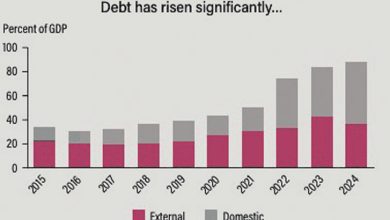Malawi faces reform test over governance report
The International Monetary Fund (IMF) has urged the Malawi Government to publish its 2024 Governance Diagnostic Assessment, stressing that transparency is critical to safeguarding public trust, restoring donor confidence and reinforcing economic stability.
In its 2025 Article IV Consultation Report, the IMF executive board highlighted the importance of advancing governance and structural reforms.
Reads the report in part: “They [the government] highlighted the need to reduce economic distortions and regulatory burdens and advance the fight against corruption.
“They also emphasised the importance of enhancing transparency and encouraged the authorities to publish the 2024 Governance Diagnostic Assessment.”
T h e Governance Diagnostic Assessment is an in-depth review conducted by the IMF to assess the strength of a country’s institutions, the transparency of its public finance management systems and the effectiveness of its anti-corruption measures.
It serves as a policy guide for reforms and a signal to international investors and development partners about the country’s governance credibility.
According to the IMF, the 2024 assessment identifies persistent governance gaps in public procurement, State-owned enterprise oversight and anti – corruption enforcement.

The report further indicated that government officials have informed the IMF that they would “consider” releasing it later in 2025 after the polls.
Governance expert Willy Kambwandira said the timely release of such reports is “crucial, especially during election years”, warning that withholding them risks undermining institutional integrity and eroding public trust.
“Transparency governance assessments act as a deterrent to corrupt practices by exposing inefficiencies and malfeasance. Their absence may embolden unethical behaviour,” he said.
Kambwandira added that the government’s long-standing rhetoric on public sector reform has “not been matched with actions”.
He called for stronger legal frameworks, autonomous institutions and greater citizen engagement to secure reforms beyond political cycles.
Scotland-based Malawian economist Velli Nyirongo in an interview on Tuesday cautioned that delaying publication could have “adverse implications for the country’s macroeconomic stability and inves tor confidence.”
He stressed that transparency is a key driver of both domestic trust and donor support, which form “an integral part of the macroeconomic environment”.
Nyirongo said withholding the report may signal uncertainty to investors and lenders, undermining efforts to stabilise an economy already grappling with elevated inflation, fiscal deficits and foreign exchange shortages.
The IMF ha s linked governance transparency di rec t l y to economic resilience, noting that corruption scandals over the past decade have eroded public trust.
While acknowledging some re f o rms such as removing the requirement for the Anti-Corruption Bureau to seek prosecutorial consent for arrests, the IMF warns that significant gaps remain in oversight and enforcement.
With donor inflows declining and elections approaching, the timing of the Governance Diagnostic Assessement’s release has become a litmus test of Malawi’s commitment to reform.





